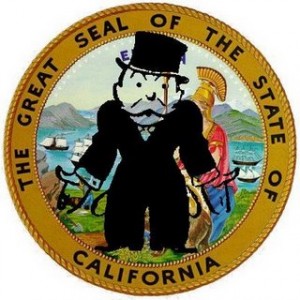

|
California and Bust
 All states may have been created equal, but they were equal no longer. The states that had enjoyed the biggest boom were now facing the biggest busts. How does the United States emerge from the credit crisis? Whitney asked herself. I was convincedbecause the credit crisis had been so different from region to regionthat it would emerge with new regional strengths and weaknesses. Companies are more likely to flourish in the stronger states; the individuals will go to where the jobs are. Ultimately, the people will follow the companies. The country, she thought, might organize itself increasingly into zones of financial security and zones of financial crisis. And the more clearly people understood which zones were which, the more friction there would be between the two. (Indiana is going to be like, N.F.W. Im bailing out New Jersey. ) As more and more people grasped which places had serious financial problems and which did not, the problems would only increase. Those who have money and can move do so, Whitney wrote in her report to her Wall Street clients, those without money and who cannot move do not, and ultimately rely more on state and local assistance. It becomes effectively a tragedy of the commons. All states may have been created equal, but they were equal no longer. The states that had enjoyed the biggest boom were now facing the biggest busts. How does the United States emerge from the credit crisis? Whitney asked herself. I was convincedbecause the credit crisis had been so different from region to regionthat it would emerge with new regional strengths and weaknesses. Companies are more likely to flourish in the stronger states; the individuals will go to where the jobs are. Ultimately, the people will follow the companies. The country, she thought, might organize itself increasingly into zones of financial security and zones of financial crisis. And the more clearly people understood which zones were which, the more friction there would be between the two. (Indiana is going to be like, N.F.W. Im bailing out New Jersey. ) As more and more people grasped which places had serious financial problems and which did not, the problems would only increase. Those who have money and can move do so, Whitney wrote in her report to her Wall Street clients, those without money and who cannot move do not, and ultimately rely more on state and local assistance. It becomes effectively a tragedy of the commons. The point of Meredith Whitneys investigation, in her mind, was not to predict defaults in the municipal-bond market. It was to compare the states with one another so that they might be ranked. She wanted to get a sense of who in America was likely to play the role of the Greeks, and who the Germans. Of who was strong, and who weak. In the process she had, in effect, unearthed Americas scariest financial places. So whats the scariest state? I asked her. She had to think for only about two seconds. California. Posted by: GolfBravoUSMC 2011-10-03 |
| http://www.rantburg.com/poparticle.php?ID=330925 |